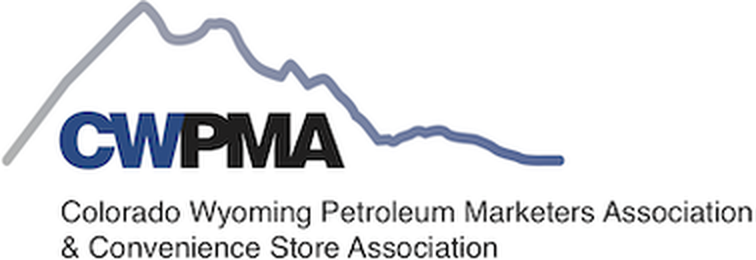The Wyoming Joint Revenue Committee will be meeting September 18 & 19 in Pinedale, Wyoming to discuss interim topics and draft bills. Three tobacco/nicotine bills and one corporate income tax bill are on the Agenda for action.
The clamoring nationally regarding youth vaping and raising the legal age for tobacco/nicotine use to a higher age has not missed Wyoming. Harboring a higher percentage of adult tobacco users...26% versus the national average of 14%...and with almost 30% of youth in Wyoming reporting electronic cigarette use within the past 30 days, the legislature is considering three bills to reign in tobacco/nicotine use:
- 20LSO-0095 - Nicotine products - taxation
- 20LSO-0107 - Nicotine products-lawful age and penalties
- 20LSO-0110 - Nicotine products-mail and online sales prohibition
The first bill seeks to tax vaping...the amount of tax to be determined after hearing testimony; provides for the collection of the tax imposed; requiring a license to sell newly defined "nicotine products"; requiring reporting of products sold and establishing penalties for noncompliance. Nicotine products is defined in the bill as:
39-18-101(a)(xi) "Nicotine product" means electronic cigarettes and vapor material, and cigarettes, cigars, snuff and any other tobacco products.
Definitions also updated in the bill include:
(ix) "Electronic cigarette" means any device that can be used to deliver aerosolized or vaporized nicotine or synthetic nicotine to the person using the device and includes any component, part and accessory of the device and any vapor material intended to be aerosolized or vaporized during the use of the device. "Electronic cigarette" includes, without limitation, any electronic cigar, electronic cigarillo, electronic pipe, electronic hookah, vapor pen and any similar product or device. "Electronic cigarette" does not include a battery or battery charger if sold separately from the electronic cigarette and does not include any product regulated as a drug or device by the United States food and drug administration under subchapter V of the Food, Drug and Cosmetic Act;
and
(x) "Vapor material" means any liquid solution or other material containing nicotine or synthetic nicotine that is depleted as an electronic cigarette is used. "Vapor material" includes liquid solution or other material containing nicotine or synthetic nicotine that is sold with or inside an electronic cigarette;
The remaining sections of the bill are basically conforming amendments to reflect the definition changes and additions. WPMA expects the tax on "vaping material" to be 5% per milliliter, the lowest tax national that has been levied in North Carolina and other states. WPMA will resist any attempts to increase burn tobacco products.
The second bill seeks to raise the legal age to purchase tobacco/nicotine products from 18 years old to 19 years old. This age was suggested by Sen. Cale Case of Lander as kind of a "placeholder" for legislative consideration. That means that the age referenced in the bill will likely be elevated to 21 years old similar to over half of the states. With the tobacco manufacturers already having supported the 21 year old age nationally, WPMA believes the bill will be amended accordingly. The bills also raises the first offense penalty for selling to underage minors from $50 to $250 with a second offense raising from $250 to $500. License restrictions on subsequent violations remain the same.
The third tobacco/nicotine bill seeks to prohibit the shipping or transport of tobacco into the state to anyone other than a licensed vendor. Included in the draft bill is an exemption for "large and premium cigars" and defines those products accordingly. Finally on this bill, the Committee will have to grapple with synthetic nicotine products that are ramping up on the market. It is likely the other bills will have to be amended depending on what the Committee determines.
Lastly, the Committee will be discussing the latest version of the "National Retail Fairness Act" that seeks to capture corporate income taxes from out-of-state corporations with 100 or more shareholders. This concept is commonly referred to as "throwback" or "throwout" rules that exact a tax on corporate earnings on sales in Wyoming. For purposes of corporate taxation, states must apportion the income of multistate businesses. All apportionment formulas use some combination of three factors: property, payroll, and sales. Many states use single sales factor, considering sales into the state to the exclusion of any other factor. Other states use all three factors, sometimes (but not always) weighted equally. The goal of apportionment is to prevent double taxation of corporate income, but there is wide variation among states in how apportionment formulas are designed.
Under throwback rules, sales of tangible property which are not taxable in the destination state are “thrown back” into the state where the sale originated, even though that’s not where the income was earned. This means that if a company located in State A sells into State B, where the company lacks economic nexus, State A can require the company to “throw back” this income into its sales factor. This bill seeks to initiate a 7% tax on qualifying corporations.
This very complex concept failed during the last session and has been discussed twice already during the interim. Rep. Jerry Obermueller (R) Casper, a CPA, has worked diligently to wordsmith the bill into something the Committee will accept. With Wyoming currently not having a corporate or individual income tax, legislators are very vigilant that this effort is not a step in a direction that would further the implementation of income taxes in Wyoming. The newest version of the bill is titled, "National Corporate Tax Recapture Act".
Obviously, this bill has a long way to go. With a Governor that has vowed not to increase taxes, the old saying the it takes "31-16 and 1" …. with the Governor being the final deciding "vote" with his signature, seems very applicable to this bill. Watch this Newsletter for further proceedings.
Any question about this article should be sent to Mark Larson for clarification.




